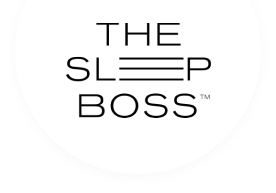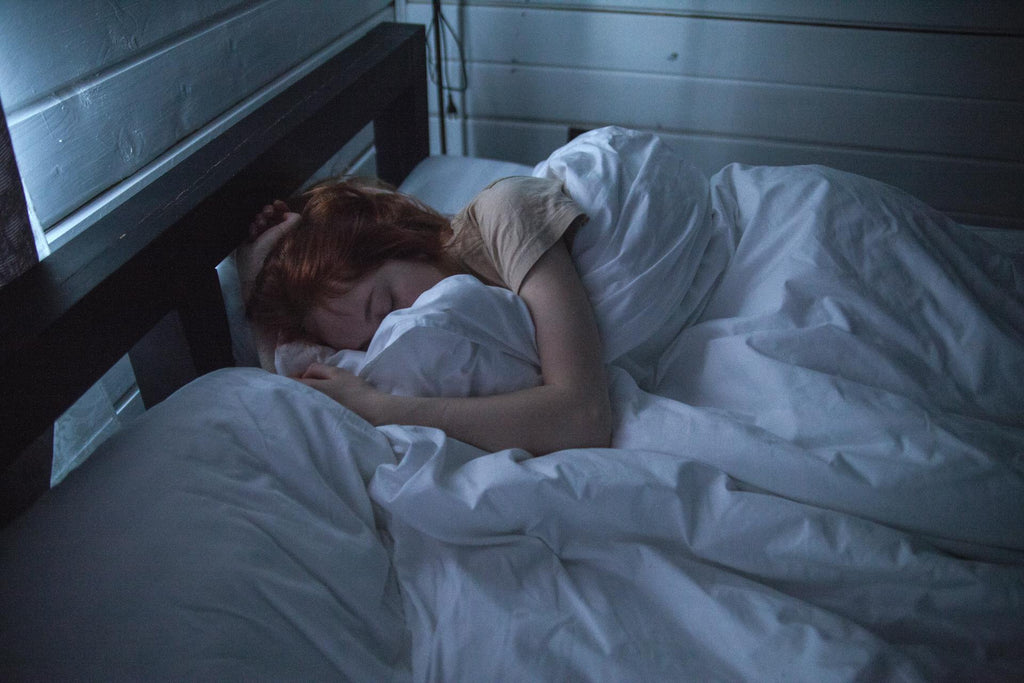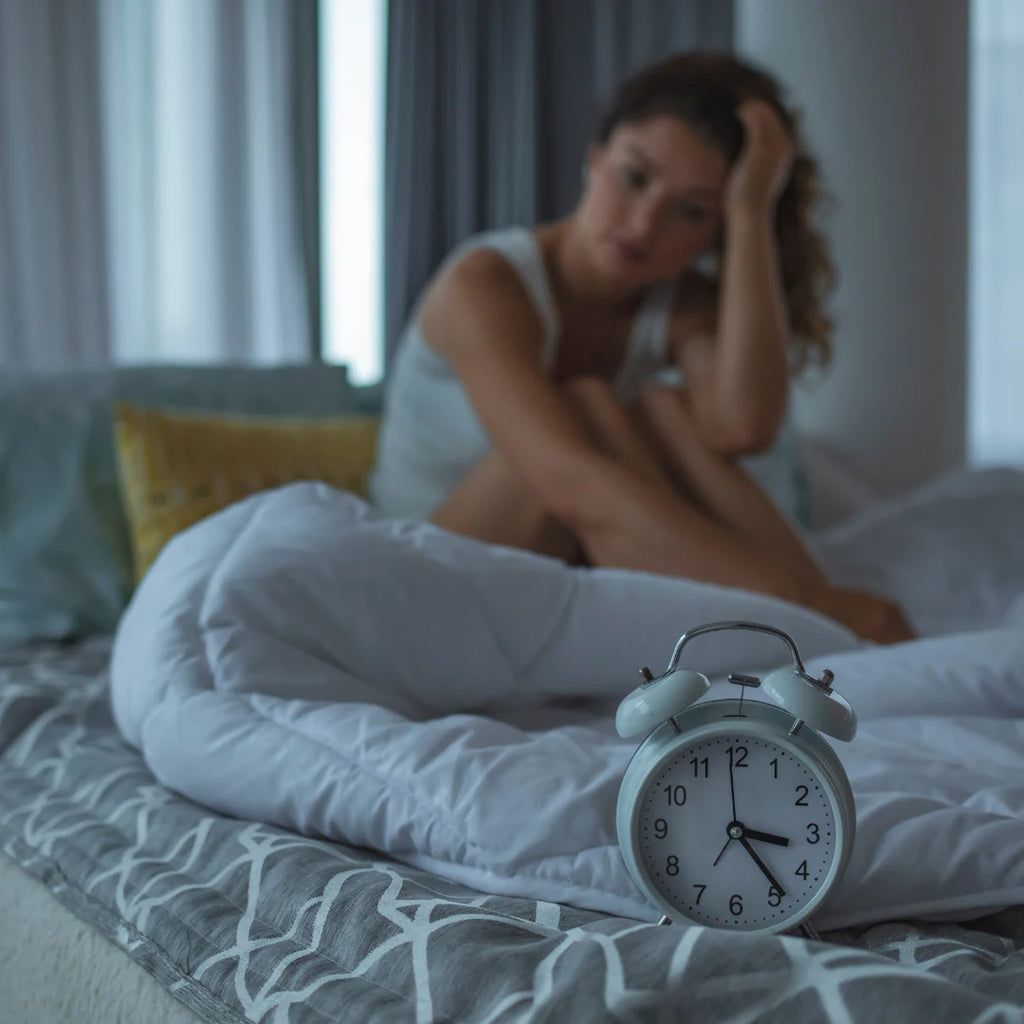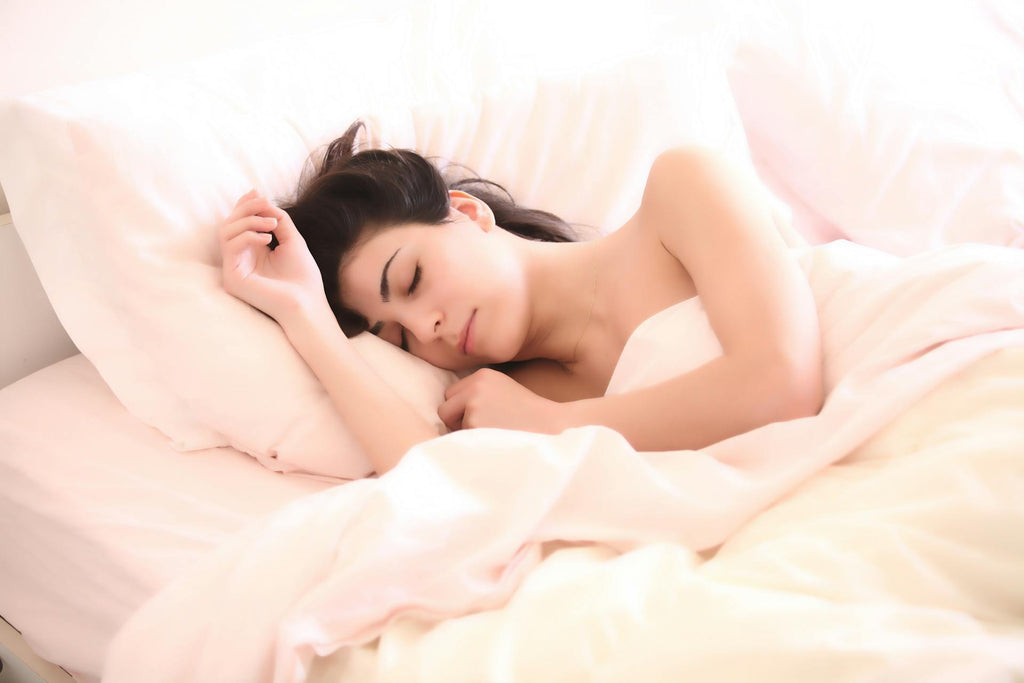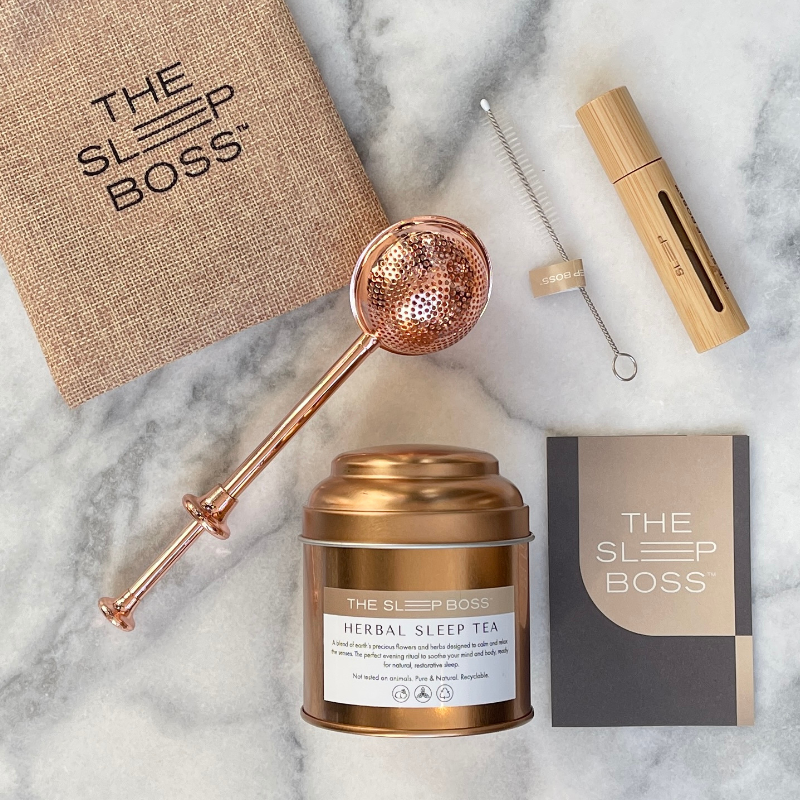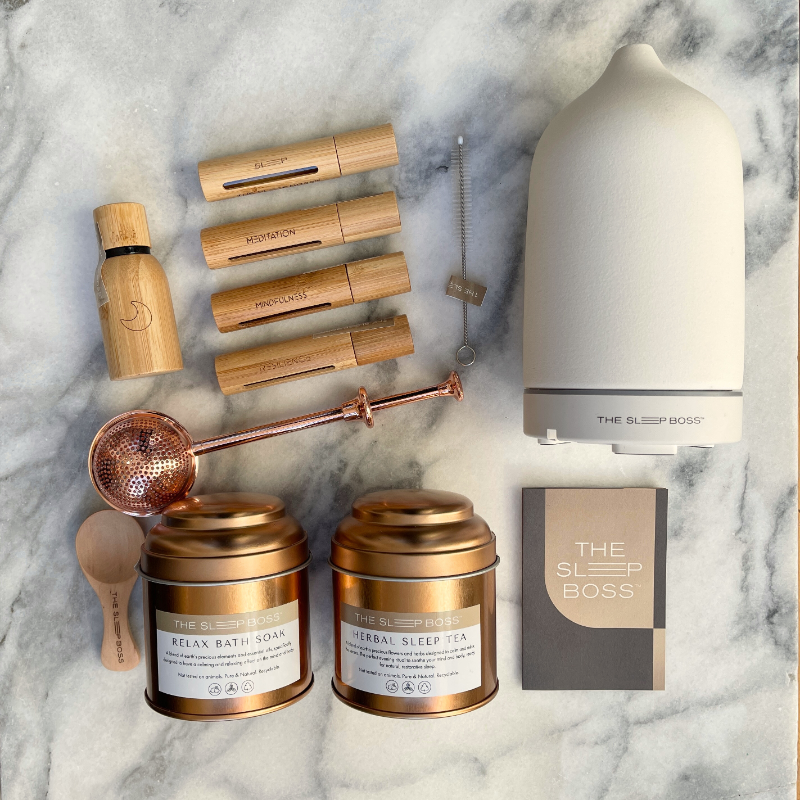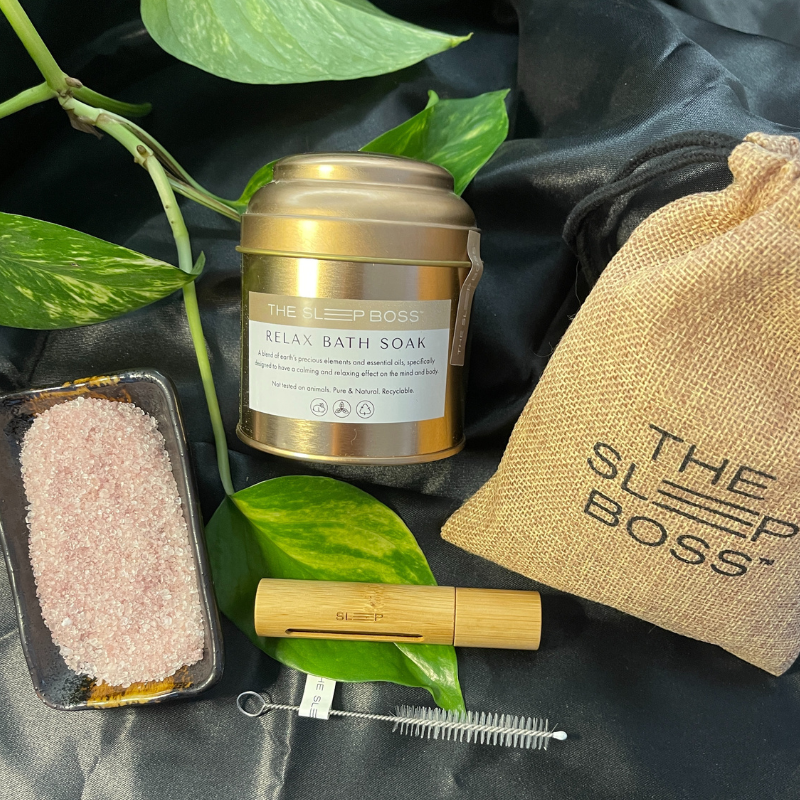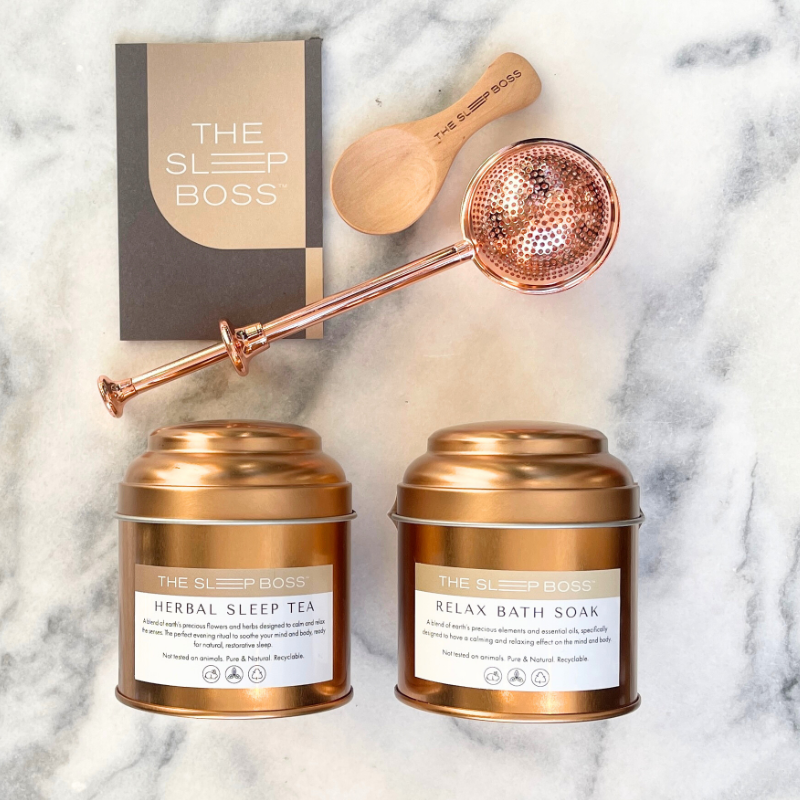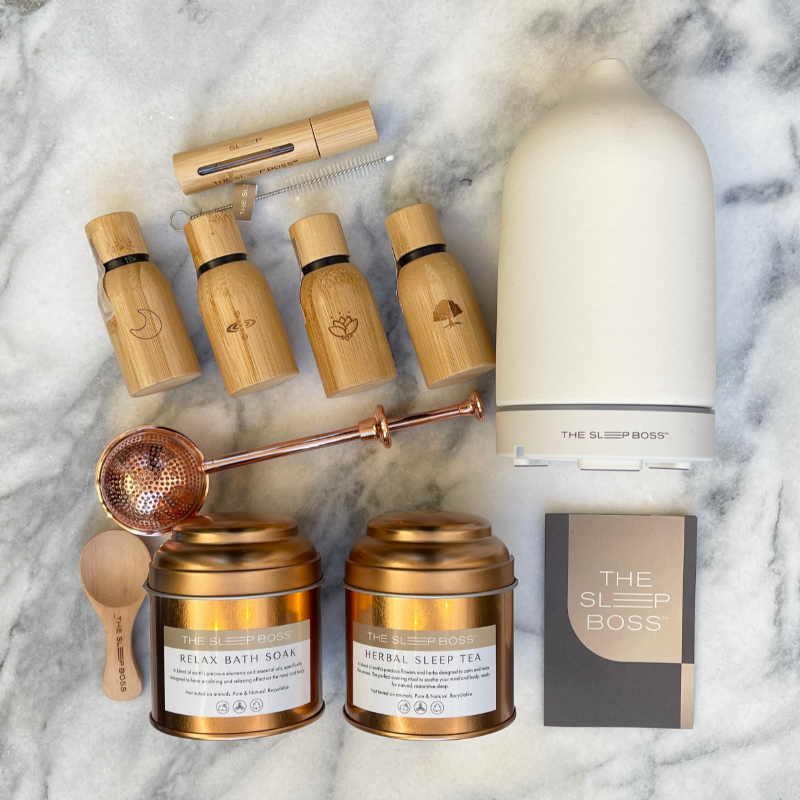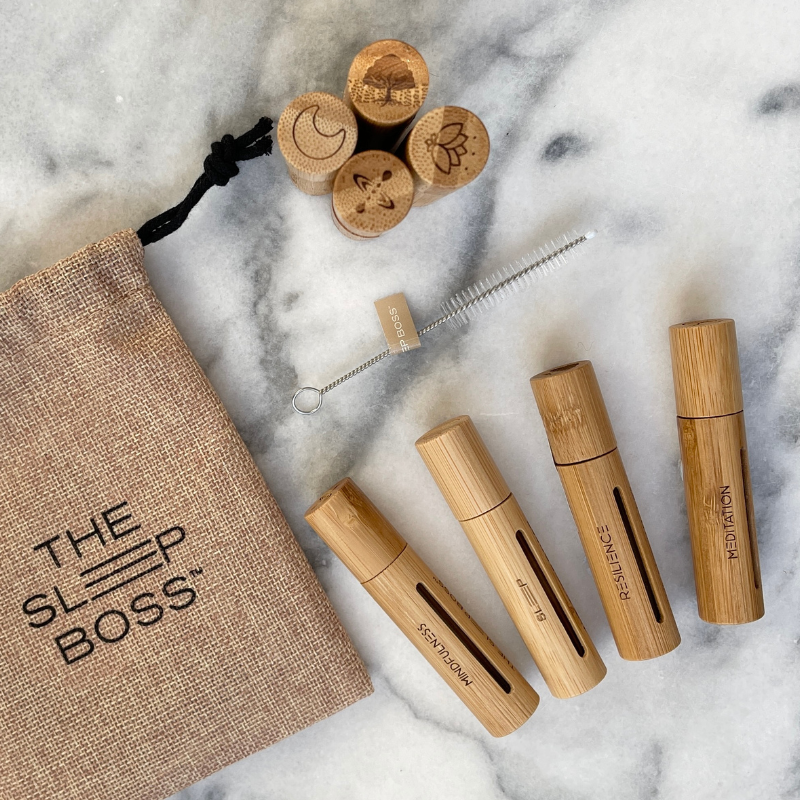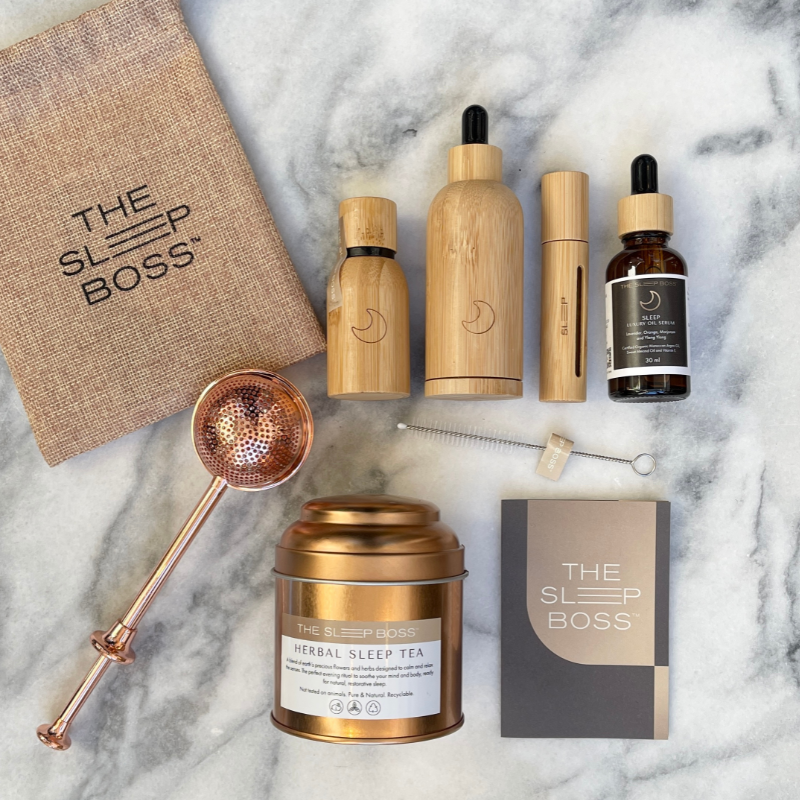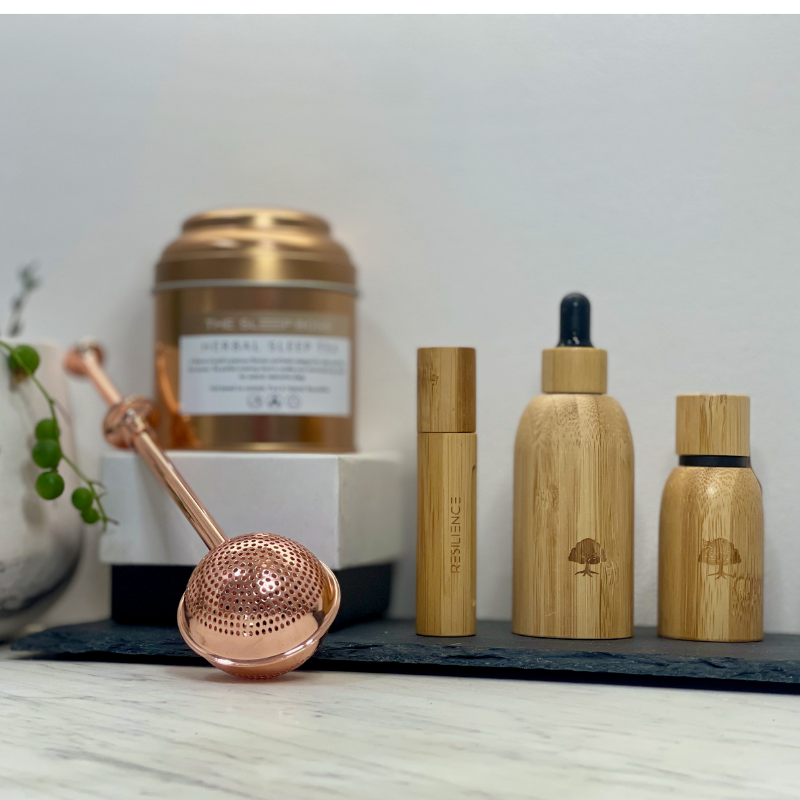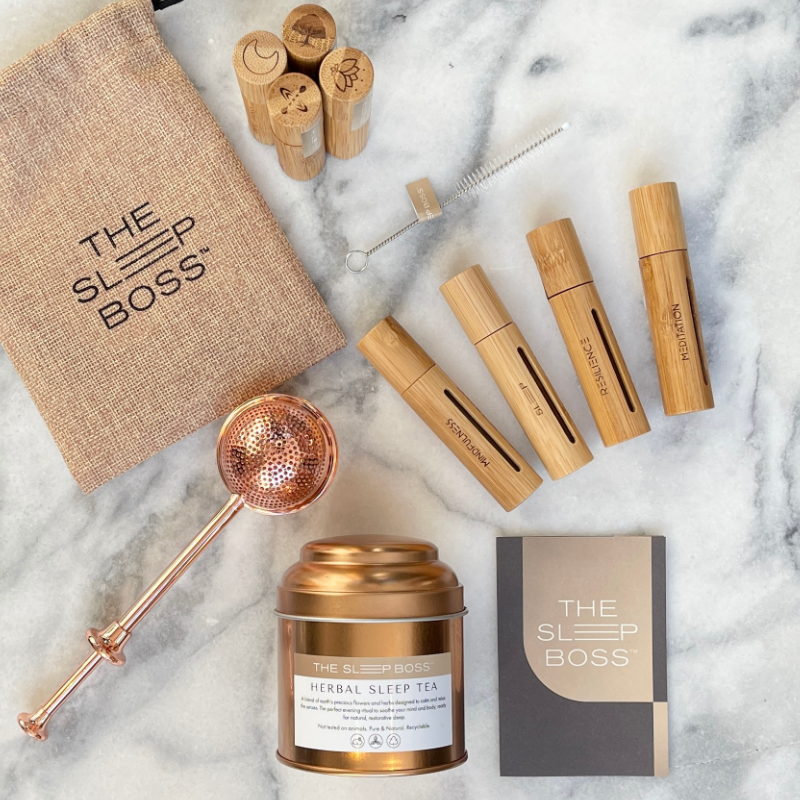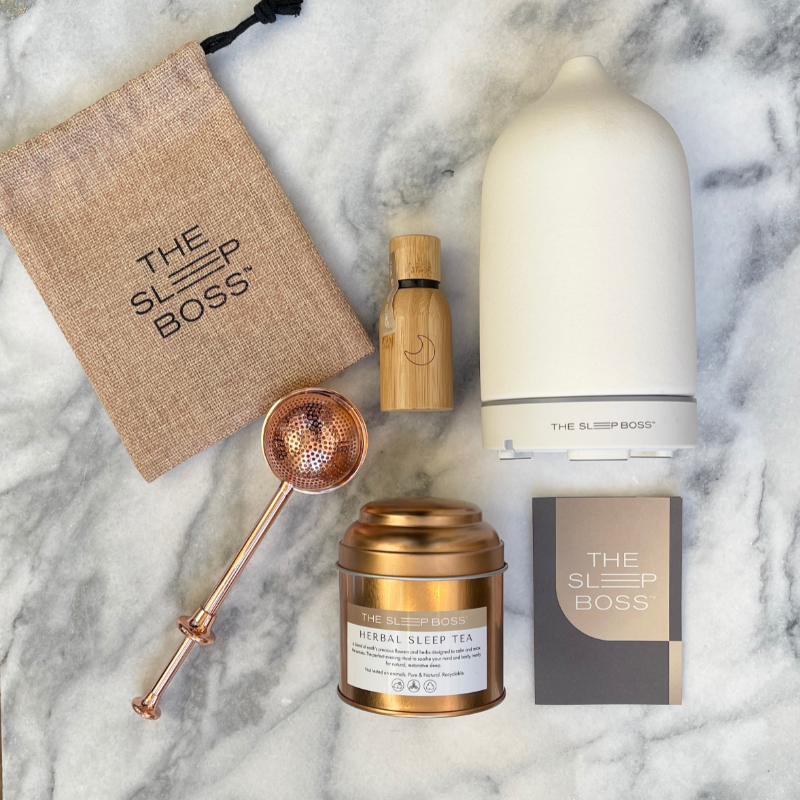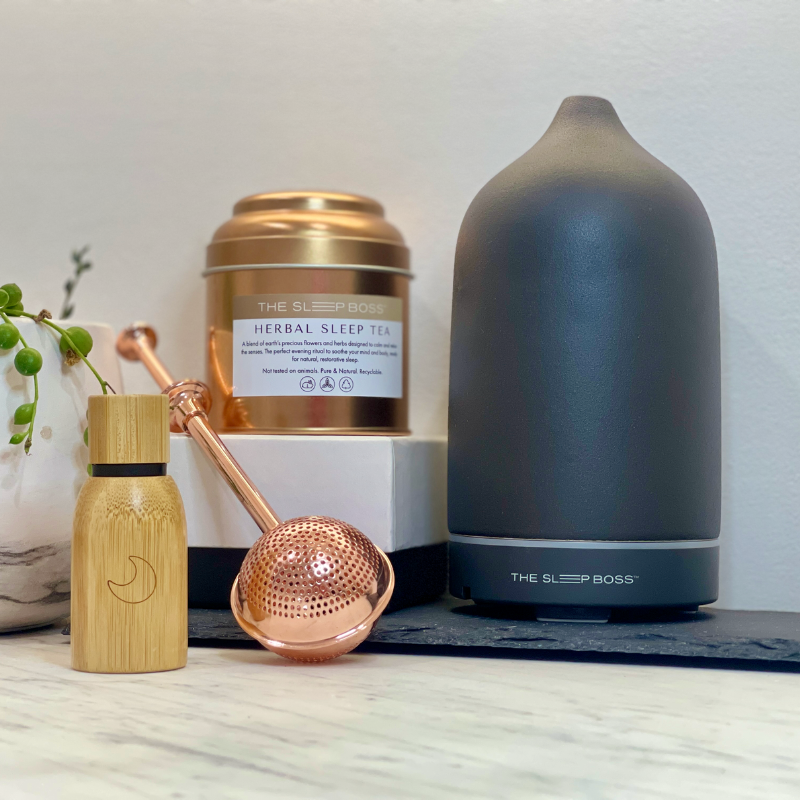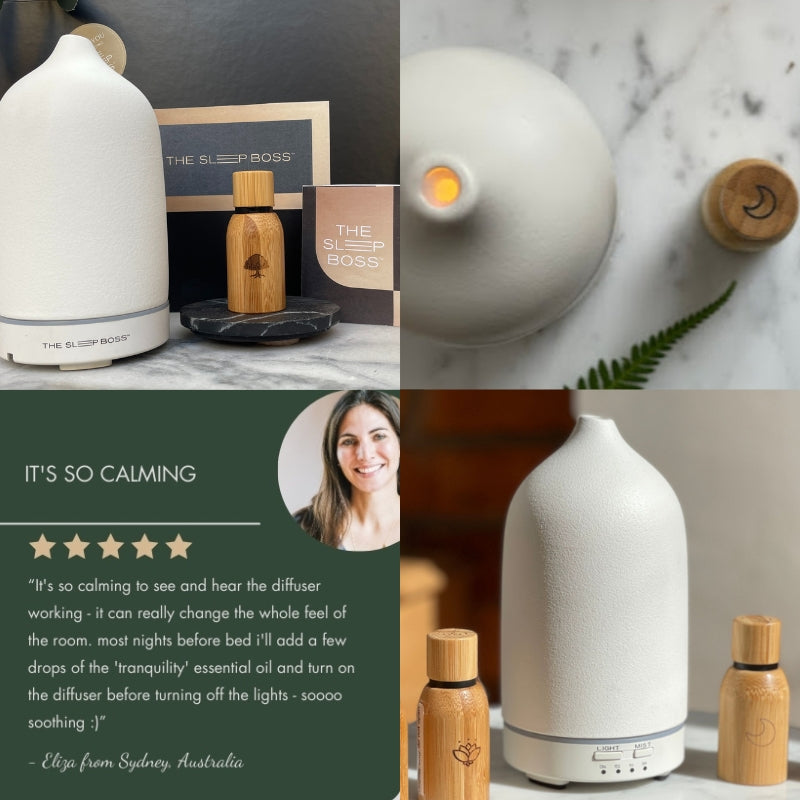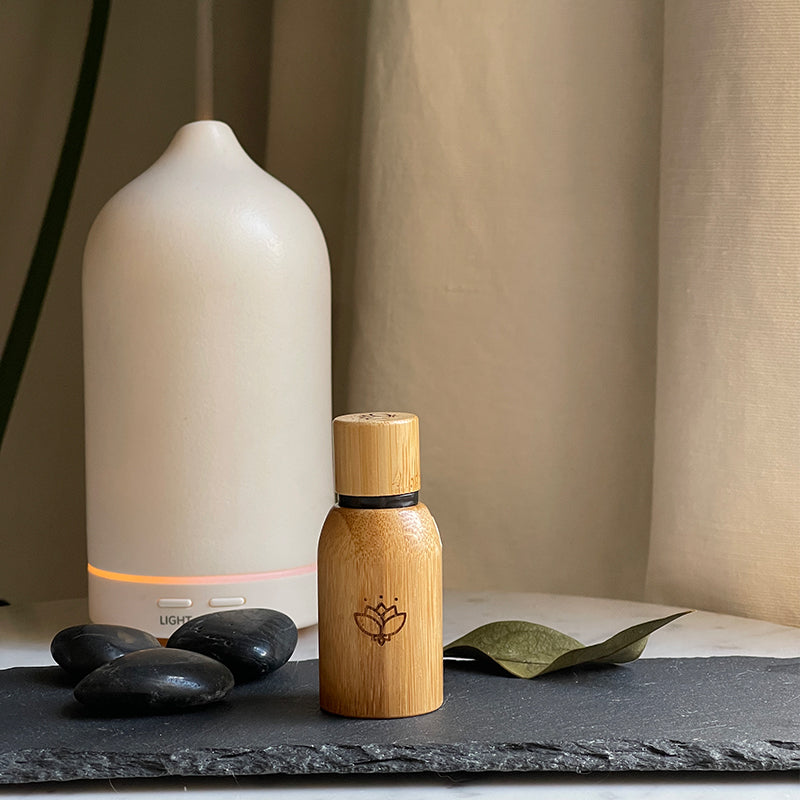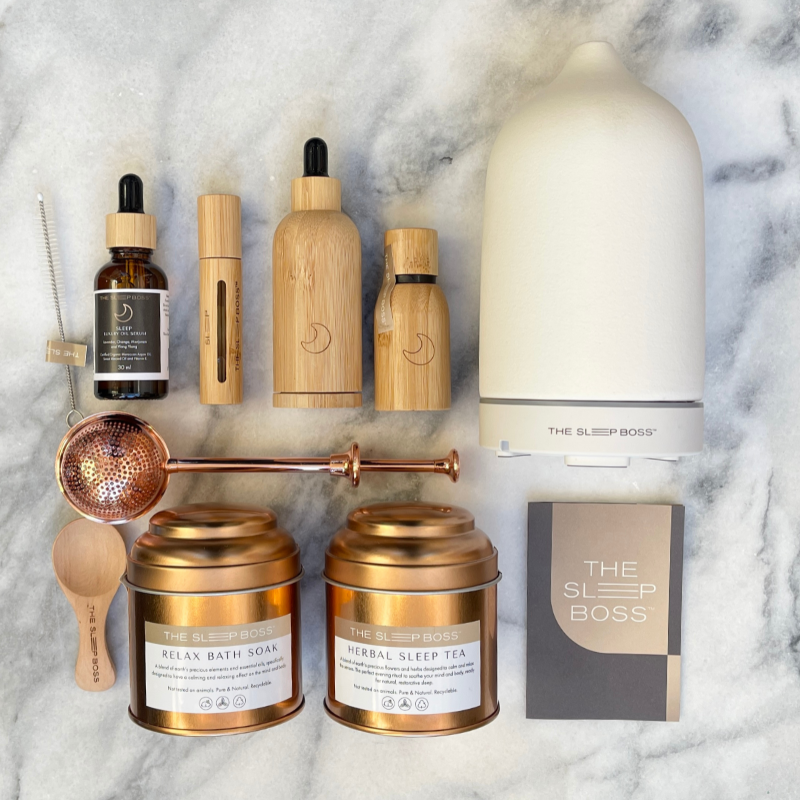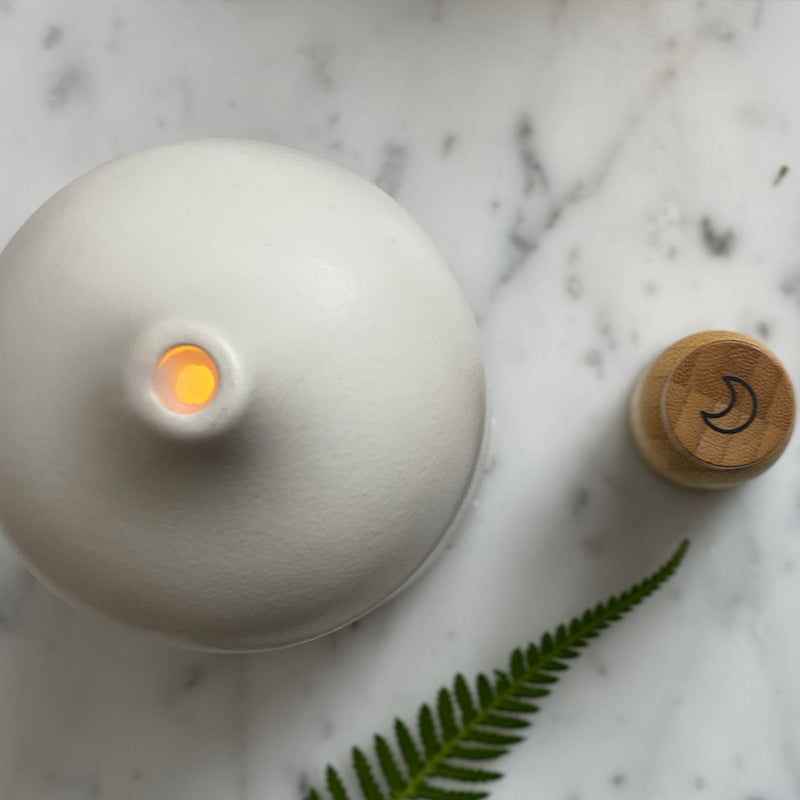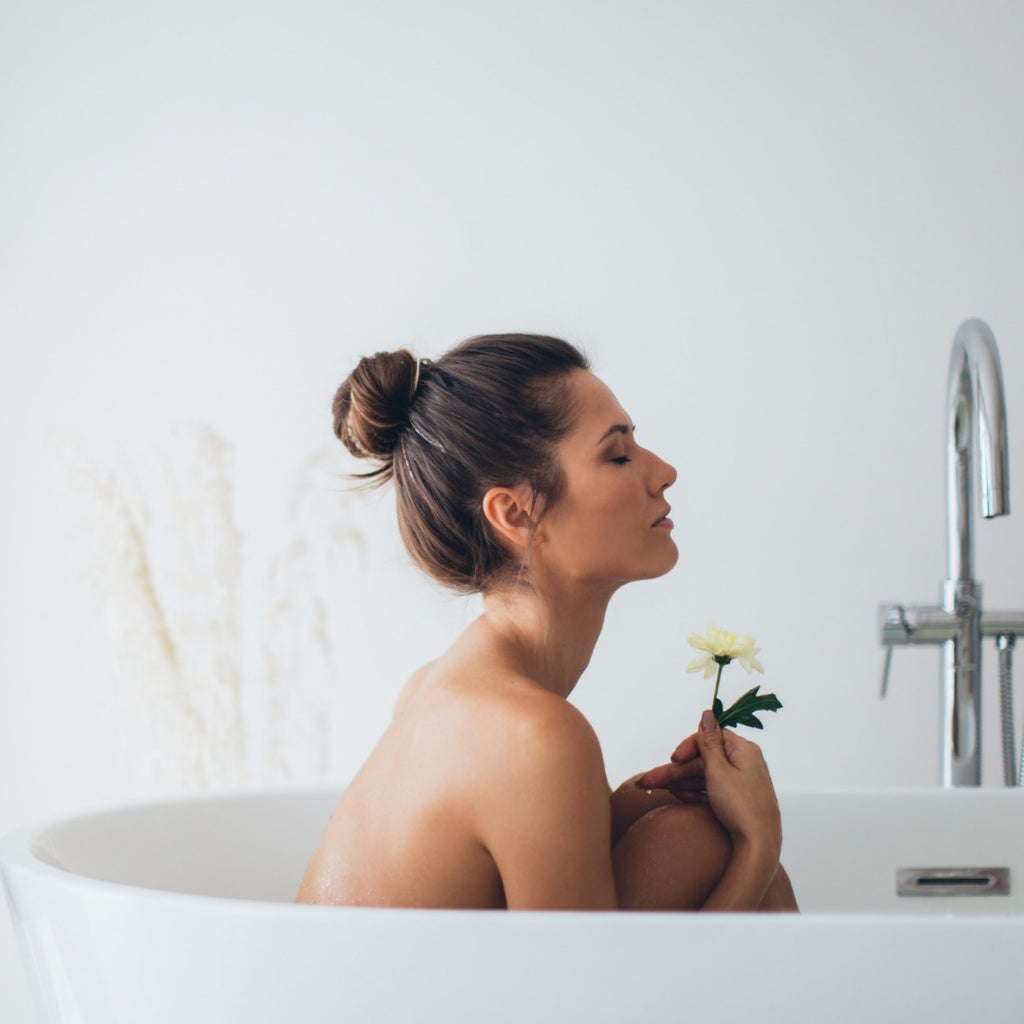
3 Simple Ways to Sleep Better
Nestled within a world where productivity is the key to success, we often find ourselves working non-stop and sacrificing our sleep. Always being switched on leads to overthinking, and overthinking sends your mind running wild, so ultimately this pattern can result in poor sleep quality. In order to create a healthy sleep routine, we’ve included a breakdown of 3 simple ways to help you sleep better.
First and foremost, now is the time to stick to a sleep schedule. Find a time that works for you and try to set alarms at the same, or similar times every morning and night. Be realistic on what time you select. A simple sleep routine where you go to bed at a specific time and wake up on time consistently, even on weekends, will help regulate your body clock. Medical Doctor (MD) and sleep medicine specialist Brandon Peters claims that some of the benefits of a sleep schedule include decreased sleep deprivation, better immune system function, fewer naps, improved alertness, easier to wake and fall asleep, less irritability and plenty more (Peters, 2019). With a list that’s long enough to have anyone wishing they could experience just one of those benefits, it’s clear that being strict with yourself and avoiding the snooze button is a productive way to a night of better sleep.
The next crucial step to getting you dozing off a little faster is exercise. This isn’t necessarily news to many people, however, there are questions relating to how much exercise, what time you should exercise and what exactly exercise does. When it comes to how much exercise, those that partake in at least 30 minutes of aerobic exercise (walking, swimming, running, etc.) each day might start to see an improvement in sleep as quickly as that same night (Hopkins, 2020). As far as what time to exercise, each person has different body clocks and therefore different reactions. Some might find exercising at night easier than the morning, or vice versa, so it depends on what works best for you. Either way, exercising at any point in the day provides invaluable benefits. Exercise has provided itself as a coping mechanism and health saviour to human’s year after year, and this is because it releases endorphins in the body. These endorphins trigger a positive feeling in the body, releasing serotonin and other chemicals to stimulate the brain (Collins, 2016). As Charlene Gamaldo, M.D., medical director of John Hopkins Centre for Sleep explains, “We have solid evidence that exercise does help you fall asleep more quickly and improves sleep quality” (Gamaldo, 2020). Facts don’t lie, and neither does consistent exercise.
Last but not least, an easy way to lull your body off to sleep is a simple warm bath or shower. Science has already solidified links between water-based body heating and an improved sleep quality which means that the facts are out there. What you need to know is that the ideal temperature for a shower or bath is advised to be between 40-42 degrees Celsius. The recommended time therefore is around 90 minutes before you go to sleep – this lowers your body temperature which influences the regulation of your sleep cycle (University of Texas, 2019). The science is there, so run that hot water, throw the bath bombs in and indulge yourself in a warm bath or shower to get that deep sleep you deserve.
We’ve done the research and found 3 simple ways to help you sleep better. Make sure you go to bed at a regular time and set that alarm to rise in the morning. Ensure you maintain a consistent exercise routine that you can stick to, and treat yourself to a nice bath or shower an hour or two before bedtime. These 3 simple ways to relax your body and boost those endorphins will create a better sleep pattern that helps you sleep deep, sleep well.
Prioritise sleep, share the inner peace, and see the difference a good nights sleep brings.
References:
- Collins, R. 2016. Exercise, Depression and the Brain. [online] healthline.com. Read Full Article [Accessed 21 April 2020].
- Gamaldo, C. 2020. Exercising for Better Sleep. [online] hopkinsmedicine.org. Read Full Article [Accessed 21 April 2020].
- Johns Hopkins Medicine. 2020. Exercising for Better Sleep. [online] hopkinsmedicine.org. Read Full Article [Accessed 21 April 2020].
- Peters, B. 2019. First Step to Better Sleep: Wake Up at the Same Time Every Day. [online] verywellhealth.com. Read Full Article [Accessed 21 April 2020].
- University of Texas. 2019. Take a bath 90 minutes before bedtime to get better sleep. [online] sciencedaily.com. Read Full Article [Accessed 21 April 2020].
